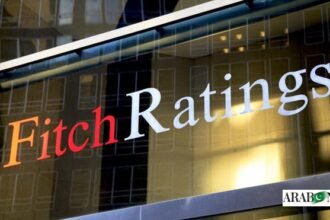One of the more intriguing financial trends that has gained popularity in recent years is the de-dollarization movement. [Sign up…
One of the more intriguing financial trends that has gained popularity in recent years is the de-dollarization movement.
[Sign up for stock news with our Invested newsletter.]
De-dollarization is an effort by a growing number of countries to reduce the role of the U.S. dollar in international trade. Countries like Russia, India, China, Brazil and Malaysia, among others, are seeking to set up trade channels using currencies other than the almighty dollar. With President Donald Trump’s international trade war ramping aggressively, is the reserve status of the U.S. dollar going to be the next domino to fall?
— History of the reserve currency.
— Why the dollar is king.
— Renewed de-dollarization movement.
— Is de-dollarization coming?
— What to do if you’re worried about de-dollarization.
History of the Reserve Currency
A reserve currency is the currency in which the majority of the world’s international transactions are handled. Historically, they have been the currencies of a series of European colonial powers, including Spain, France and England at various points. These empires often backed their currencies with precious metals, typically gold, in addition to the implicit backing of the state.
Following World War I, the British economy struggled to regain its vigor. Much of the world’s gold flowed from London to New York for safekeeping and speculation in the roaring 1920s U.S. equity bull market. America’s dominant role in World War II further cemented New York as the financial capital of the world, and the dollar as its most important currency. The greenback was formally made the world’s reserve currency in 1944 as a result of the Bretton Woods Agreement, a status the sterling had previously held.
President Richard Nixon abandoned the gold standard in 1971. From that point on, the dollar has been backed not by precious metal, but purely by the full faith and credit of the U.S. government. And since 1971, critics have called for the end of the U.S. dollar as the world’s reserve currency.
Why the Dollar Is King
There are several factors that have led to the dollar maintaining its international reserve currency status. One is the so-called “petrodollar.” The vast majority of the world’s oil transactions occur in dollars. As the global oil trade amounts to billions of dollars per day and all countries need energy, this creates a great deal of demand for dollars to facilitate these transactions.
While oil is the most obvious example, there’s a broader need for a world unit of exchange. Consider a scenario where a Brazilian farmer sells soybeans to a Japanese condiments company. It’s highly unlikely that the Japanese firm would have Brazil’s currency, the real, on hand to pay the farmer. Similarly, the Brazilian grower is not going to want to accept Japanese yen in exchange for their soybeans. Thus, the logical solution is to use an intermediary to convert yen into dollars, buy the soybeans with dollars and then have the producer convert those dollars into their local currency.
To that point, the Federal Reserve estimates that between 1999 and 2019, the dollar accounted for 96% of international trade transactions in the Americas, 74% in Asia and 79% around the rest of the globe. Globally, banks used dollars for approximately 60% of their nondomestic deposits and loans. And in the foreign exchange market today, the U.S. dollar is on one side of almost 90% of all transactions.
The euro looked like it might have a chance to replace the dollar at the turn of the century. But the 2008 financial crisis and various political and economic shocks in Europe have since diminished the standing of a central European currency as a world standard. Japan has its own issues with a stagnant economy and shrinking population. China is unlikely to become a reserve currency anytime soon given the extreme capital controls that its government places on the use of the yuan.
All other potential candidates are likely too small to be a reserve currency. The Swiss franc, for example, is known as a stable and well-regarded currency. However, the economy it’s tied to, Switzerland, is tiny and would not be able to support the huge capital flows required of an international reserve currency.
[READ: 7 Best International Stock Funds to Buy for 2025]
Renewed De-dollarization Movement
The latest de-dollarization movement started in 2022 when the U.S. imposed all-encompassing sanctions against Russia following Russia’s invasion of neighboring Ukraine. Various world leaders took umbrage at the idea that the U.S. could freeze their funds due to any sort of diplomatic or military dispute.
In 2025, Trump’s aggressive tariffs and isolationist policies have disrupted U.S. alliances with Europe and other trade partners. Trump’s antagonistic approach to trade policy has ostracized American allies and may encourage more countries to seek ways to reduce their reliance on the dollar.
In addition, inflation is weakening the standing of the dollar on the international stage. Some experts have understandably grown concerned about U.S. debt levels and the impact that debt could have on the dollar in the long term. Rather than paying down its debt over time, the U.S. could instead choose to erode away the value of that debt via inflation. When U.S. inflation is high, savers around the world question the security and stability of the dollar for long-term savings and investments.
Against this backdrop, leaders of countries such as China, India and Brazil have been calling for moves to trade directly with each other in their own currencies while cutting the U.S. dollar out of the equation. This change would incrementally diminish the role and importance of dollars while creating a multipolar financial world where the next tier of economies would have significantly more say in global affairs.
Russia, along with the aforementioned three countries, formed what’s known as BRICS, a group of emerging countries in a loose economic alliance to counter Western influence. The group now also includes South Africa, Egypt, Ethiopia, Indonesia, Iran and the United Arab Emirates.
At the 2024 BRICS Summit, Russian President Vladimir Putin spoke out about the so-called weaponization of the dollar.
“The dollar is being used as a weapon. We really see that this is so. I think that this is a big mistake by those who do this,” Putin said.
He also noted that nearly 95% of trade between Russia and China now takes place in rubles and yuan, bypassing the dollar. BRICS members have even floated the idea of creating a single BRICS currency to use to transact with one another, but there appears to have been little actual progress in creating a functional BRICS currency or payment system at this point.
Is De-Dollarization Coming?
The good news for Americans is that the value of the dollar has held up well in recent years, despite growing U.S. debt and inflation. But while the US Dollar Index is up 1.3% overall in the past five years, it has dropped 8.8% year to date as of June 18.
That recent weakness in the dollar stems from Trump giving investors mixed signals about the dollar’s role as the world’s reserve currency. In 2024, Trump threatened to impose 100% tariffs on any country that opts to trade using alternative currencies. However, Trump has also argued the dollar’s strength in recent years has been “a disaster for our manufacturers” because it increases the cost of American-made goods.
Trump’s aggressive trade policies may be driving the dollar’s 2025 weakness, or it may be that global investors are simply losing faith in the long-term outlook for the U.S. economy.
Fortunately for Americans, there appears to be no viable alternative to the dollar as of yet. While gold has been an effective hedge against inflation, it is unlikely to replace the dollar as a global reserve currency due to challenges with transportation, storage, liquidity and supply. Likewise, Bitcoin and other cryptocurrencies face their own challenges with liquidity, security, scalability and energy consumption (not to mention volatility).
Lucas Kiely, CEO at Future Digital Capital Management, says global de-dollarization is simply unfeasible at this point.
“A complete global shift from USD seems improbable in the near future, despite efforts by China and Russia — two countries known for manipulating their own currencies — to destabilize it,” Kiely says. “Ultimately, where is the alternative?”
Instead of choosing a single alternative currency, central banks around the world have taken a more diversified approach, incorporating currencies of smaller economies such as Australia and Canada.
Philip Alberstat, managing director at DBD Investment Bank, says there are also logistical reasons why the dollar will likely maintain its global reserve currency status for the foreseeable future. Alberstat says it would take decades, not years, for the global economy to transition away from the dollar.
“The institutional relationships and clearing mechanisms supporting the current system represent generations of development,” he says. “Even if viable alternatives existed — which they currently do not — displacing an established reserve currency requires sustained effort over extended periods.”
What to Do if You’re Worried About De-dollarization
Investors concerned about de-dollarization can dial back exposure to U.S.-specific funds like the SPDR S&P 500 ETF Trust (ticker: SPY) and increase their allocation to funds such as the Vanguard FTSE Developed Markets ETF (VEA) and the Vanguard FTSE Emerging Markets ETF (VWO).
Elliot Johnson, CEO of Bitcoin Treasury Corp., also recommends investors diversify into non-correlated assets, such as Bitcoin, real estate, gold and certain commodities.
Investors can also turn to U.S. dollar hedges such as gold via SPDR Gold Shares (GLD) and real estate via funds such as the Vanguard Real Estate ETF (VNQ).
“Whether the dollar retains its dominance or not, the core principle of investment stands: Don’t put all your eggs in one basket,” Johnson says. “And, in an increasingly inflationary world witnessing fast-shifting global power dynamics, diversification has never been more essential.”
More from U.S. News
7 Best Emerging-Market ETFs to Buy for 2025
U.S.-China Trade Deal: Which Stocks Will Benefit From the Tariff Truce?
7 Best International Stocks to Buy Now
De-Dollarization: What Would Happen if the Dollar Lost Reserve Currency Status? originally appeared on usnews.com
Update 06/20/25: This story was published at an earlier date and has been updated with new information.




















